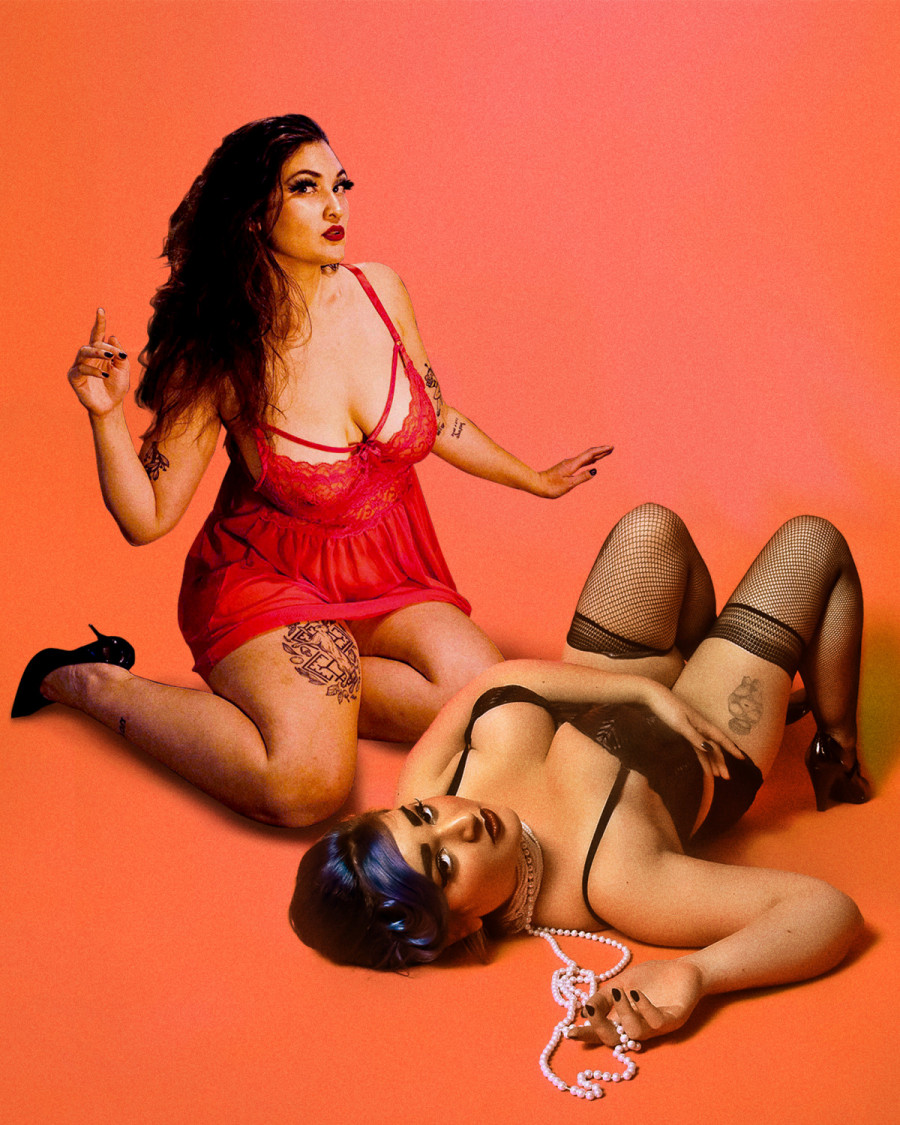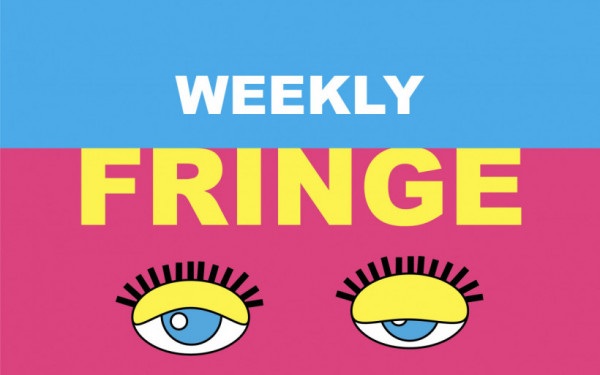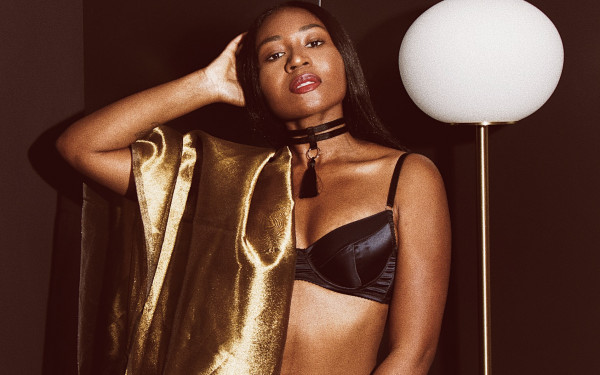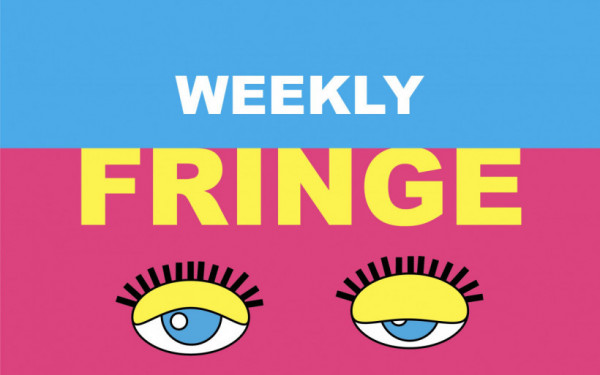Lust Cove: an inclusive burlesque and striptease space succeeding in the industry
The queer, trans, BIPOC troupe presents their latest virtual show
At the height of the pandemic, Kaya Koko founded Lust Cove, a burlesque, stripper, and performance artist troupe to provide entertainment to those stuck at home.
Made up of queer, trans, Black, Indigenous, People of Colour, the troupe has been putting on virtual shows for over a year.
Before Lust Cover, Koko, a stripper and burlesque performer, found herself kittening—a term used in the burlesque industry to describe a stagehand—without ever really getting the chance to perform. Despite her longstanding theater and dance experience, Koko was not given the opportunities she deserved. Tired of the racism and elitism she experienced in the industry, she decided to create her own troupe in 2020 and it has since been a success.
Lust Cove will be presenting their latest 18+ virtual show, Bedroom Eyes, on Jan. 28 at 8 p.m.
These answers have been lightly edited for clarity.
Q: Can you tell me about the beginnings of Lust Cove? What were some of the inspirations that led to its creation?
Producers were very problematic a lot of times and I was one of the only racialized people there. I'm mixed. I'm half Korean. I didn't get any chances to perform and many other racialized people in burlesque really don't feel welcome either. Now, it's starting to pick up a bit more, which is really cool. But a lot of other people had a shared sentiment because producers were not letting us perform.
I think, for me, we can just perform for the sake of performing. Not all of us want to make a career out of it. Performing itself is good for us mentally, and as a community to see yourself being represented, it's really important. So I said, ‘If they're not going to give us a space to perform, I need to create a space and I have the resources to do that. I'm going to do this, not only for me, but for everyone else who also doesn't get the opportunities, who is racialized, queer and/or trans.’
Q. Do you find misconceptions and prejudiced mindsets are still prevalent towards the exotic dancing industry?
I find you see a lot more racist behaviours and attitudes in the burlesque context versus the actual sex work context. Burlesque dancers are not sex workers and I think that they have these sort of elitist attitudes, but I think that burlesque in general is built off of appropriation, which is already inherently problematic.
Q. Why do you think these problems are more prevalent in burlesque?
I think it's because it costs a lot of money to do burlesque. You already have these financial barriers. You have to pay a lot of money to even be taken seriously by industry people when it comes to costumes, classes, and all that. So I think that's already one barrier.
With the theatrics, you still see so many white women performing or trying to perform in Asian or other BIPOC spaces in general. I can't explain why this happens.
Q. What are some ways we can help move the industry towards a safer and more comfortable one?
One thing especially would be to go to shows where you see that racialized performers are cast. So many producers are like, “I don't want to see racialized people because that doesn't sell.” But that’s just complete bullshit and I think that our shows really proved that that's a bunch of garbage. Supporting performers who are racialized is the most important thing that you can do.
Read more: Montreal’s comedy scene much more than Just for Laughs
Q. Over the years, how has Lust Cove developed?
I think the community is growing because now it's becoming a lot more like a community theater. We're open to so many people joining and we really want to make it accessible to any sort of racialized person who wants to start, whether you're a first-time performer or whatever. We've been doing consistently well, which I think is really encouraging, and a lot of people are kind of finding out about it more and more. If we can make it more of a community thing, I'd find that would be really cool.
Now we're starting to work with Full Circle. They basically help any QTBIPOC person between the ages of 14 to 25 who wants to get involved in any sort of art project. Obviously, since we're collaborating with them, it's for people who are 18 to 25. We can reach the community in a more accessible way because people are going to be taking workshops from Lust Cove performers and they’re free. I think that's a way that we're kind of expanding and that we're giving back to the community now, which is really important to me personally.
Q. Lust Cove has been presenting virtual performances for quite a while now. How does online and in-person entertainment differ for this kind of performance art?
Online is really cool because you can play with different effects and stuff like that. When you're doing a live performance, you have to do one thing that's really continuous, but when you're doing an online show with let's say, pre-recorded acts, you can do different edits. You can do different scenes. I find you can be creative in different ways online versus in person.
Q. What can we expect from the show on Jan. 28?
The show is called Bedroom Eyes, so it's any sort of theme related to sex in general. It's just going to be a lot of sensual performance art related to that. I think it'll be fun.
Q. Do you have anything else that you would like to add?
If anybody who identifies as QTBIPOC wants to join, we're always taking new people. Of course, we can't guarantee when they'll get to perform exactly because we have a limit as to how many people can perform per show. But if anyone wants to be part of the circle, they can always message us on Instagram.
Tickets for Bedroom Eyes are donation-based with a $10 suggestion.




_600_375_s_c1.png)


